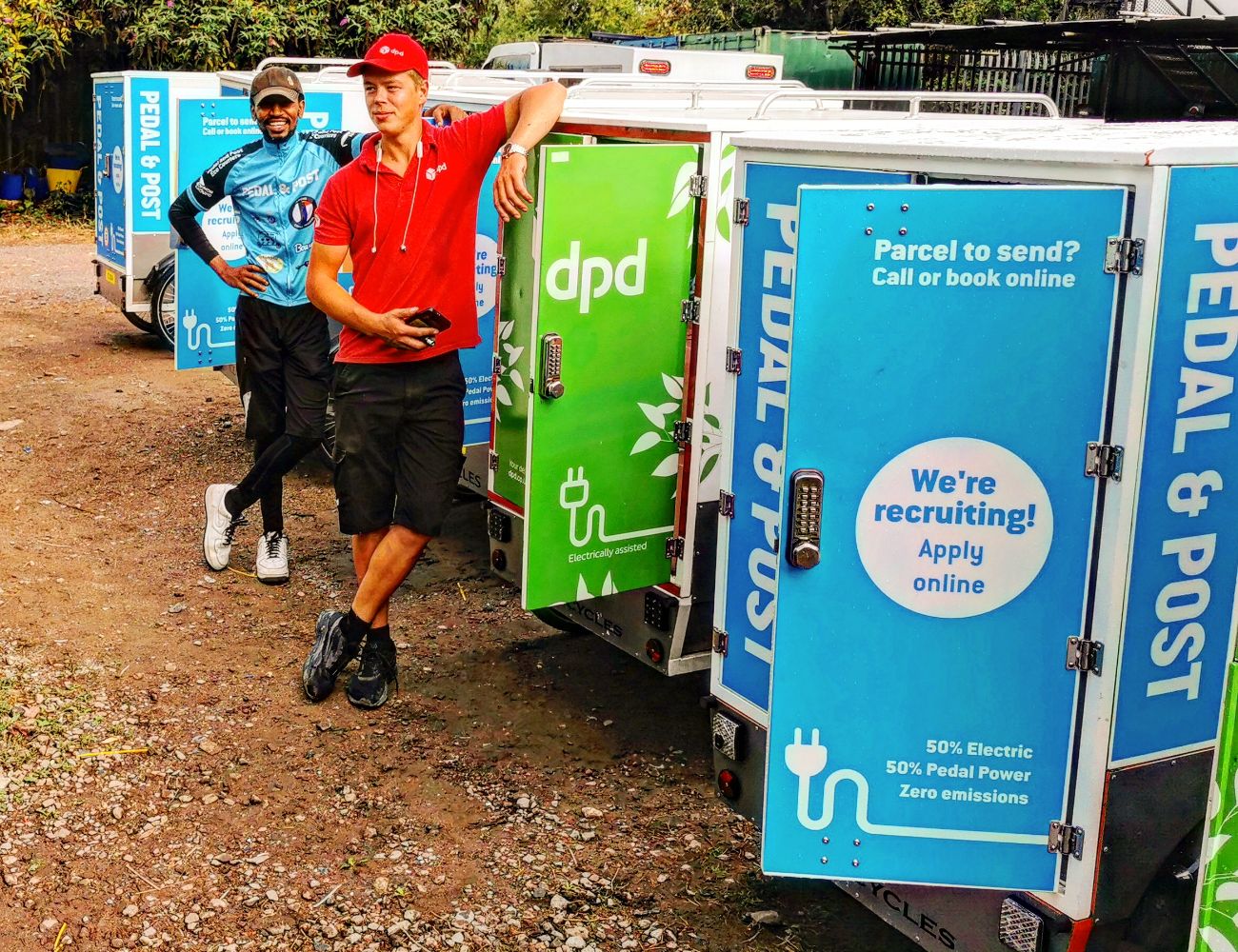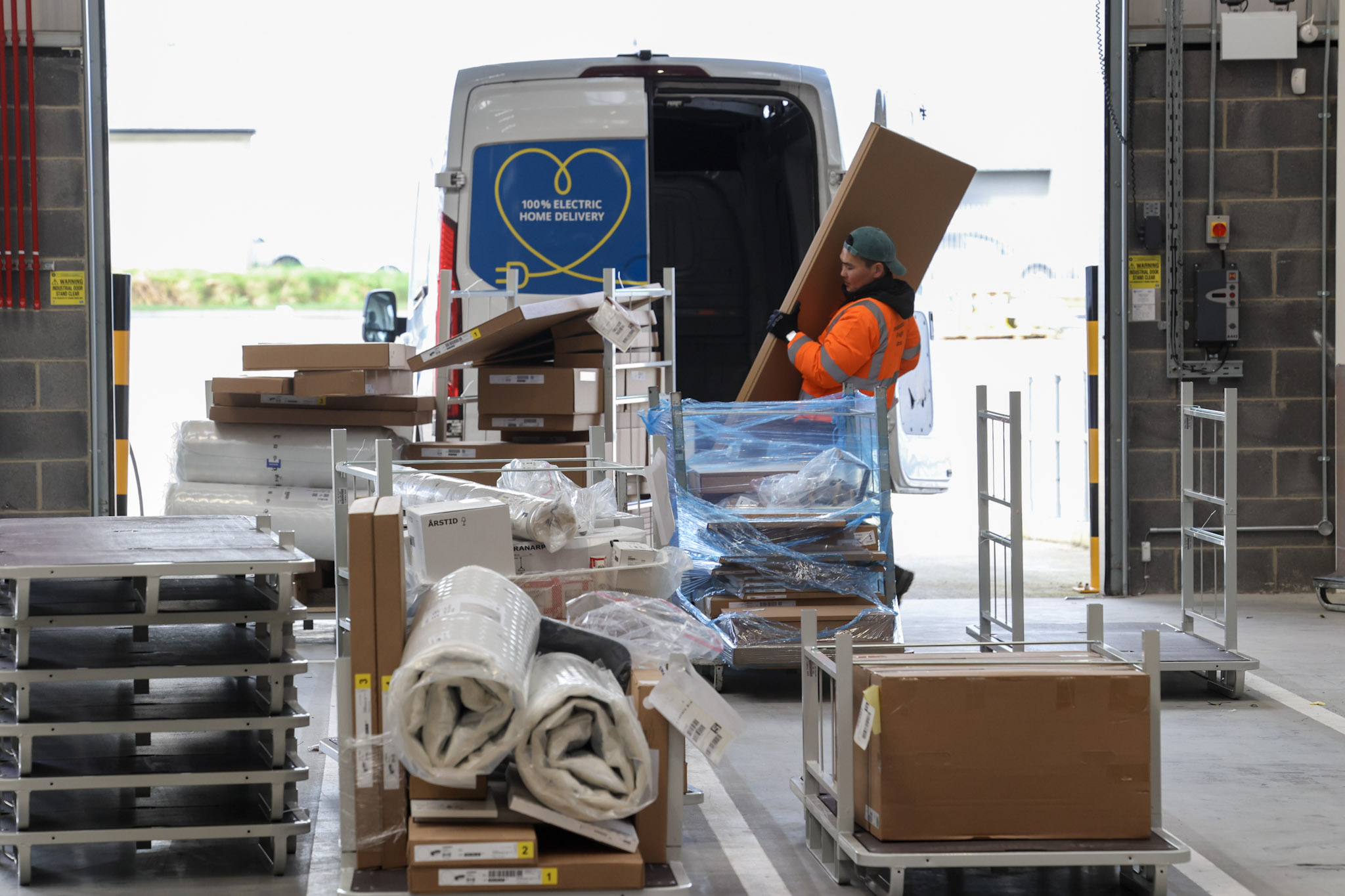If delivery companies switched to using cargo bikes instead of diesel vans for the first and last mile of deliveries, it would save the NHS and other government services over £4bn by reducing the costs of congestion and air pollution, according to new analysis.
The figures are published to mark the launch of a share offer for Pedal and Post, a low emissions courier company currently operating in Oxford. The company, currently valued at £2m, plans to raise up to £500,000 through a crowdfunding campaign on the ethical investment platform Ethex in order to expand in Oxford and to launch in Reading next year.
Research from the Department for Transport has found that 33% of all urban deliveries could be done by cargo bikes or ecargo bikes. A recent report looking at the impact of van pollution by researchers at Just Economics found that the hidden social and environmental costs associated with diesel vans total £2.46bn in London alone.
If a third of those costs were saved from switching to zero emissions cargo bikes, the savings in health and environmental would be £4.25bn across England. In Oxford, the equivalent saving for taxpayers would be £14m.
The costs are derived from savings from reduced congestion, less air pollution, better health outcomes for riders, and fewer accidents and greenhouse gas emissions from switching from diesel vans to cargo bikes.
Chris Benton, the CEO of Pedal and Post, said: “The potential to clean up our air and grow the UK economy is huge. Pollution from diesel van deliveries costs the NHS nearly £25,000 across the lifetime of the van, compared to around £150 for an electric cargo bike. We also know that cargo bikes can deliver more parcels per hour than the average van, and produce 92% less greenhouse gas emissions per delivery, so it really is a no brainer to make the switch.”
Pedal and Post are already working with established delivery companies such as DPD, Yodel and Riverford to handle their smaller packages, as well as more traditional Oxford partners such as Blackwell’s bookshops and Wolfson College, part of the University.
Overall, cycle courier provision across the UK is sporadic and fragmented. Birmingham, Manchester and Sheffield have no cycle courier services despite being some of the largest of UK cities. Many smaller towns and cities such as Swindon and Reading also have no cargo bike services, though Pedal and Post plans to expand to Reading early next year. Nationally, there are now around 8 cargo bike services that operate in more than one city.
Jamie Hartzell, chair of Pedal and Post, added: “The potential market here is huge. We know that internet retail sales grew by 47% in 2020. But while getting goods delivered to your home at a click of a button is easy and time saving at a time when we are all under pressure, it comes at a significant cost to our health and the environment. Electric cargo bikes are a crucial part of the solution to speed up deliveries and make our air safer to breathe.”
A major report ‘Breathing life into the UK economy: Quantifying the economic benefits of cleaner air’ by CBI Economics, the CBI’s economic analysis arm, examines the economic impacts of the UK achieving World Health Organisation (WHO) guidelines for air pollution, and found:
- A £1.6bn annual economic benefit to the UK could be realised by meeting WHO guidelines for safe air
- 17,000 premature deaths could be prevented every year from respiratory diseases
- Three million working days could be gained by reducing worker sickness absence or absence due to sick children.










